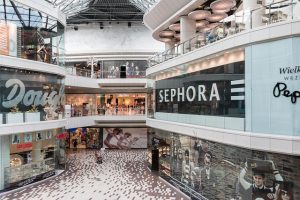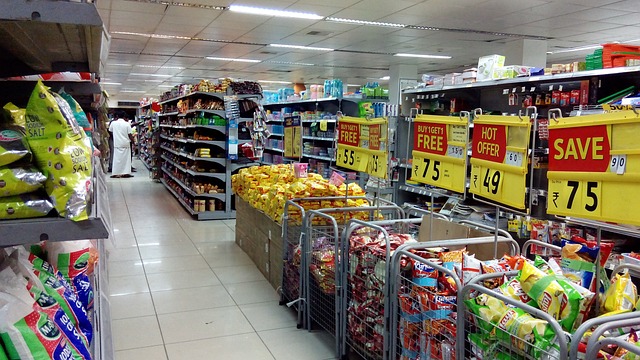By Mark Friedman, President of Details Interactive LLC
My wife always warns me before I head to our local wholesale club not to buy a bunch of things we don’t need just because they’re cheap. Inevitably I come home with a pair of off-brand slippers that are a size too big, a huge box of cereal that we don’t eat, or some gadget that promises to make my golf swing better. These “misfit” products aren’t really a discount at all. I would have been better off paying full price for fewer things that I’d actually use.
My discount buying spree can be compared to a similar buying spree that many retailers are now regretting. The US recorded record discounts during the holiday season in 2023. Electronics were discounted an average of 31%, fashion 24%. Retailers moved product and acquired a bunch of one-and-done customers that are not going to build long term value in the long run. Typically, full-price customers deliver higher lifetime value to a retail brand than customers acquired through discounting.
The reasons for such heavy discounts are many. Brands, even luxury brands that normally don’t discount, had overstock they needed to move, people are price-conscious due to inflation and perceived economic instability, and retailers are dealing with more competition than ever. But that doesn’t mean heavy discounts are a good long-term strategy. Brands can be smarter about delivering value to shoppers while moving product and acquiring new customers.
The Art of the Relevant Promotion
While a big box wholesale club builds their reputation on discounts, many brands risk getting in over their heads if they discount too much. Unless it’s the way the brand has been designed, getting in the habit of discounting can change consumer brand perception, attract lower-value customers, train high-spending customers to wait for sales, and make it hard to pull back when the market looks brighter.
After we had twins, my wife shopped at our local grocery store several times per week. She was loyal, spent a lot of money, and was a friendly customer. One day, the produce manager sent her a big bouquet of flowers to thank her for being one of their best customers. It was this “surprise and delight” that stuck with her and caused her to tell her friends. Even if it did not drive an additional dollar of sales, it certainly created a lasting memory and cemented loyalty. Our kids are grown up now and I still tell that story as an example of using the data a retailer collects to demonstrate to a customer that they do see you.
A study from Boston Consulting Group found that consumers would prefer fewer, more relevant promotions. I believe that the word “promotion” means a lot more than “discount.” A promotion should be thought of as something that promotes the brand to a customer and drives future loyalty and sales. Promotions could be a “surprise and delight” offer of free shipping, an invitation to preview new products, or a one-time loyalty point bonus. The point is to connect it to something that makes sense to the customer so that they perceive it as personal and special.
Would my wife be as fond of that grocery store if they had simply reduced the price of certain items by 5%? The flowers didn’t cost much in the grand scheme of things, but they meant more because they were specifically for her. I was recently reminded of this story when Faherty sent us a wool cap to thank us for shopping with them. It meant a lot more to me than an email with a 10% offer. Using brand products is a richer experience. Faherty is a high-end brand, and sending a nice item feels luxurious and special. That’s a true win-win.
Rethinking Promotions With Customer Data
Not every brand can ship a gift to customers, but the concept of creating a relevant experience of value is still important. Data offers the surest path to relevance. Customers leave signals for retailers everywhere, but few retailers ever do anything with the insight. When I worked at Steve Madden, Bluecore helped us significantly improve the number of relevant triggered messages we sent to customers. If we had a hot new boot, we could target people in the customer file with a high propensity to buy the item, creating a personal and relevant experience.
When I was at Eddie Bauer, we worked with third-party tools like Notus to combine customer spend data and our own product information with data like location and weather to deliver targeted content and relevant promotional offers. For example, if the forecast for weather on the east coast was colder than normal or included snow, and we had a view more than 10 days out, we would tee up emails to customers in those regions and promote hats, gloves, scarfs, and our very heavy outerwear. At the same time, the weather forecast for the southwest might be warmer than normal, so we would target customers there with relevant items based on our product availability.
The beauty of fewer more relevant promotions is that it works for customers and for the company. Brands can preserve their prices, improve their margins, and increase loyalty and purchase frequency at the same time. Even a brand that has fallen into a sales rut can come up with alternative ways to deliver value. Perhaps a brand is in the habit of discounting every few months to move product and drive activity to hit short-term goals. They can reduce their sales, perhaps have two semi-annual sales, and supplement between sales with more targeted promotions that aren’t so focused on discounts.
With a focus on relevant promotions rather than broad-based discounts, customers get fewer, better experiences and brands rebuild long-term value.
About the author
 Mark Friedman is the President of Details Interactive LLC a digitally focused, direct to consumer marketing veteran. His career has spanned more than 25 years, working with brands like Steve Madden, Brooks Brothers, Calvin Klein Underwear, Calvin Klein Jeans and Speedo.
Mark Friedman is the President of Details Interactive LLC a digitally focused, direct to consumer marketing veteran. His career has spanned more than 25 years, working with brands like Steve Madden, Brooks Brothers, Calvin Klein Underwear, Calvin Klein Jeans and Speedo.
Related Articles

The Rise of Digital Experience Platforms (DXPs) in Software Development
Software development is evolving, as Digital Experience Platforms enable the delivery of a personalised digital cross-channel experience. A DXP delivers integrated content, Artificial Intelligence, and low-code rapid application development tools. It streamlines the work of developers as well as marketers.

7 Employee Benefits That Can Help Your Business Increase Staff Retention
With so many businesses vying for the attention of skilled job candidates, it’s becoming more important to look for ways to make your offerings more appealing by adding unique perks that not every employer does.

How Retailers Can Prepare for the Summer 2025 Shift
Rather than focusing on isolated touchpoints or departmental KPIs, journey management provides a way to understand where the most critical pain points lie and how to resolve them systematically across the business.

Retailers Are Drowning in Data – Journey Management Could Be the Lifeline
Rather than focusing on isolated touchpoints or departmental KPIs, journey management provides a way to understand where the most critical pain points lie and how to resolve them systematically across the business.



 for the latest news and job opportunities in retail tech
for the latest news and job opportunities in retail tech 